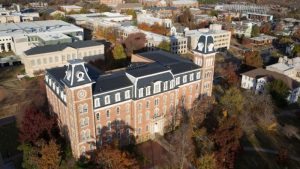A new study conducted by Rutgers University showcases how remote learning has put New Jersey lower-income K-12 school districts students and teachers at a disadvantage.
State government IT officials said this week they are working to deploy their share of $1 billion of Federal cybersecurity grant funding approved last November by Congress as part of the $1.2 trillion bipartisan infrastructure bill.
California has awarded several new contracts that will supply the materials necessary for building 3,000 miles of broadband infrastructure, taking the state one step closer to delivering affordable high-speed internet service to communities throughout California.
Clark County, Nev., this week confirmed the appointment of Bob C. Leek to serve as the county’s new chief information officer (CIO).
The House of Representatives passed the State and Local Government Cybersecurity Act on May 17, which would promote increased cybersecurity collaboration between the Department of Homeland Security (DHS) and state, local, tribal, and territorial governments (SLTT).
The University of Arkansas (UA) System has hired Eric Wall as its first-ever chief information security officer (CISO) – a newly created position that oversees IT security efforts across all 22 campuses, divisions, and units within the system.
Maryland Gov. Larry Hogan further solidified Maryland’s commitment to cybersecurity by signing three bills that will fund new technology purchases and staff positions and solidify the state’s cyber policy structure.
The Mayor of Miami-Dade County in Florida announced that the county is beginning three new climate technology initiatives that will help cut down on wasted water, invest in ocean and climate tech, and regenerative ocean businesses, the county announced May 10.
Virginia Gov. Glenn Youngkin has released a new telework policy that aims to have Virginia state employees return to the office on July 5.
The Delaware state Department of Technology and Information (DTI) on May 5 announced two new key appointments – Jordan Schulties as chief of administration, and Tammy Shelton as Delaware broadband infrastructure grant manager.
Archives
- June 2025 (1)
- December 2024 (1)
- November 2024 (1)
- October 2024 (1)
- September 2024 (1)
- August 2024 (1)
- July 2024 (1)
- June 2024 (1)
- May 2024 (1)
- April 2024 (1)
- March 2024 (1)
- February 2024 (1)
- January 2024 (1)
- December 2023 (1)
- November 2023 (1)
- October 2023 (1)
- September 2023 (1)
- August 2023 (1)
- July 2023 (1)
- June 2023 (1)
- May 2023 (1)
- April 2023 (1)
- March 2023 (1)
- February 2023 (1)
- January 2023 (1)
- December 2021 (1)
- October 2021 (1)
- June 2021 (1)
- May 2021 (2)
- April 2021 (2)
- March 2021 (4)
- February 2021 (1)
- February 2020 (1)
- October 2019 (2)
- September 2019 (3)
- August 2019 (1)
- July 2019 (2)
- December 2018 (1)
- February 2018 (1)
- September 2017 (3)
- November 2016 (2)
- October 2016 (3)
- September 2016 (1)
- April 2016 (1)









